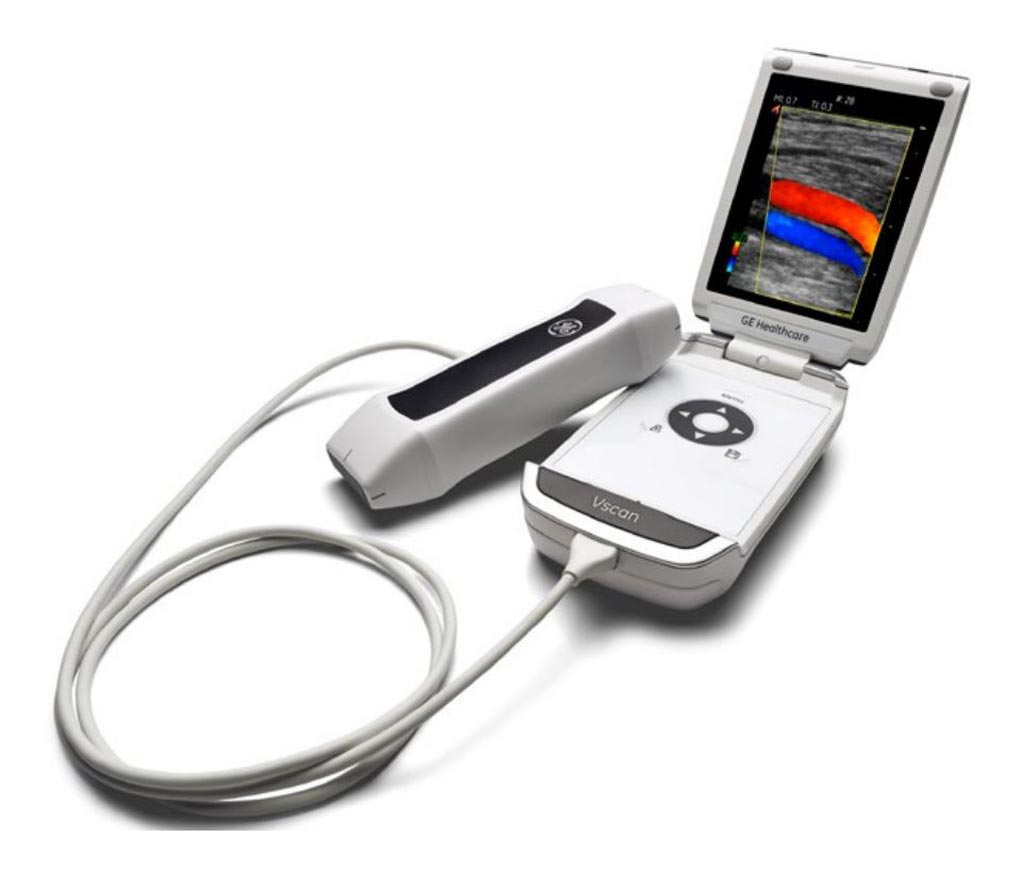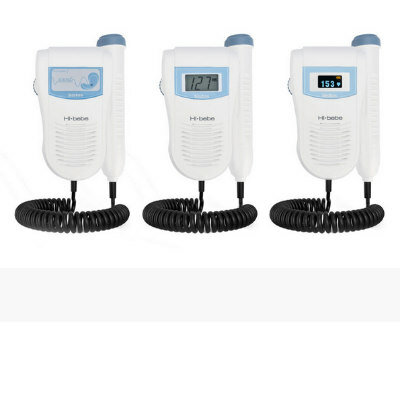Ultrasound Scanners Market Driven by AI, Cloud and Portable Systems
By MedImaging International staff writers
Posted on 01 Jun 2019
The global ultrasound market is expected to have achieved revenues of USD 6.12 billion from 115,592 units in 2018, driven by its offer of fusion imaging, wearable ultrasound, and Artificial Intelligence (AI)-powered systems in the established markets and contrast-enhanced ultrasound and elastography in the emerging markets. The cart-based segment dominated the ultrasound market with the highest revenues, accounting for a share of 73.4% and 60.4% of unit shipments.Posted on 01 Jun 2019
These are the latest findings of Frost & Sullivan (San Antonio, TX, USA), a provider of research and consulting solutions.

Image: The Vscan portable ultrasound scanner (Photo courtesy of GE Healthcare).
According to the research, the market participants can capitalize on additional growth opportunities by:
-Engaging in cross-functional partnerships across the continuum of equipment management, covering software upgrades and transducer maintenance;
-Augmenting technical support capabilities with onsite engineers, virtual assistance, and online tools;
-Adopting a targeted approach toward emerging application areas like emergency medicine, anesthesia, and primary care;
-Identifying growth markets based on factors such as ease of transition and willingness to use portable or ultra-portable systems;
-Targeting general practitioner (GP) clinics with ultra-portable systems and small hospitals with cart-based systems;
-Developing new business models focusing on operational efficiency and training.
"Globally, emerging segments such as musculoskeletal, anesthesiology, and endocrinology will evolve into established segments by 2023," said Poornima Srinivasan, Industry Analyst, Transformational Health. "AI will be used in premium ultrasound systems, primarily for detecting breast cancer, in ob-gyn settings for fetal image assessment, and in the cardiology domain in the US, Japan, and Western European countries."
"Non-invasiveness, expanding clinical applications, affordability, and introduction of portable and ultra-portable systems, cloud, AI, and other digital capabilities are expected to further drive the growth of ultrasound scanners," added Srinivasan. "Domestic manufacturers will compete against major OEMs on product features, pricing, and servicing, while vendors will compete on value-based products, product miniaturization, and automation."
Related Links:
Frost & Sullivan














